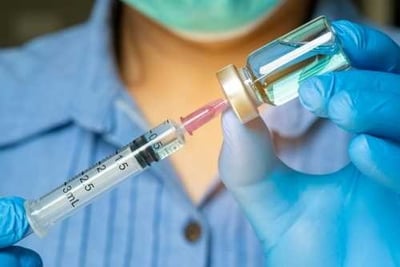Clinicaltrials.gov identifier:
NCT05111353
Treatment study for people with pancreatic cancer
Vaccines for Pancreatic Cancer After Chemotherapy
About the Study
NOTE: This study is no longer recruiting people.
This study is looking at the safety of and the immune system response to a vaccine in people diagnosed with pancreatic cancer that would be administered after chemotherapy. The vaccine will incorporate proteins that can trigger an immune response and will be given along with a drug called poly-ICLC which can also activate immune cells.
Missouri
City: Saint Louis RECRUITING
Facility: Washington University School of Medicine
Contact Info:
[email protected]
314-747-0072
William E Gillanders, M.D.
Robert D Schreiber, Ph.D.
Malachi Griffith, Ph.D.
Feng Gao, M.D., Ph.D.
S. Peter Goedegebuure, Ph.D.
Roheena Panni, M.D.
Kian H Lim, M.D.
Koushik Das, M.D.
Marianna Ruzinova, M.D., Ph.D.
Sherri Davies, Ph.D.
NOTE: This study is no longer recruiting people.
NOTE: This study is no longer recruiting people.
